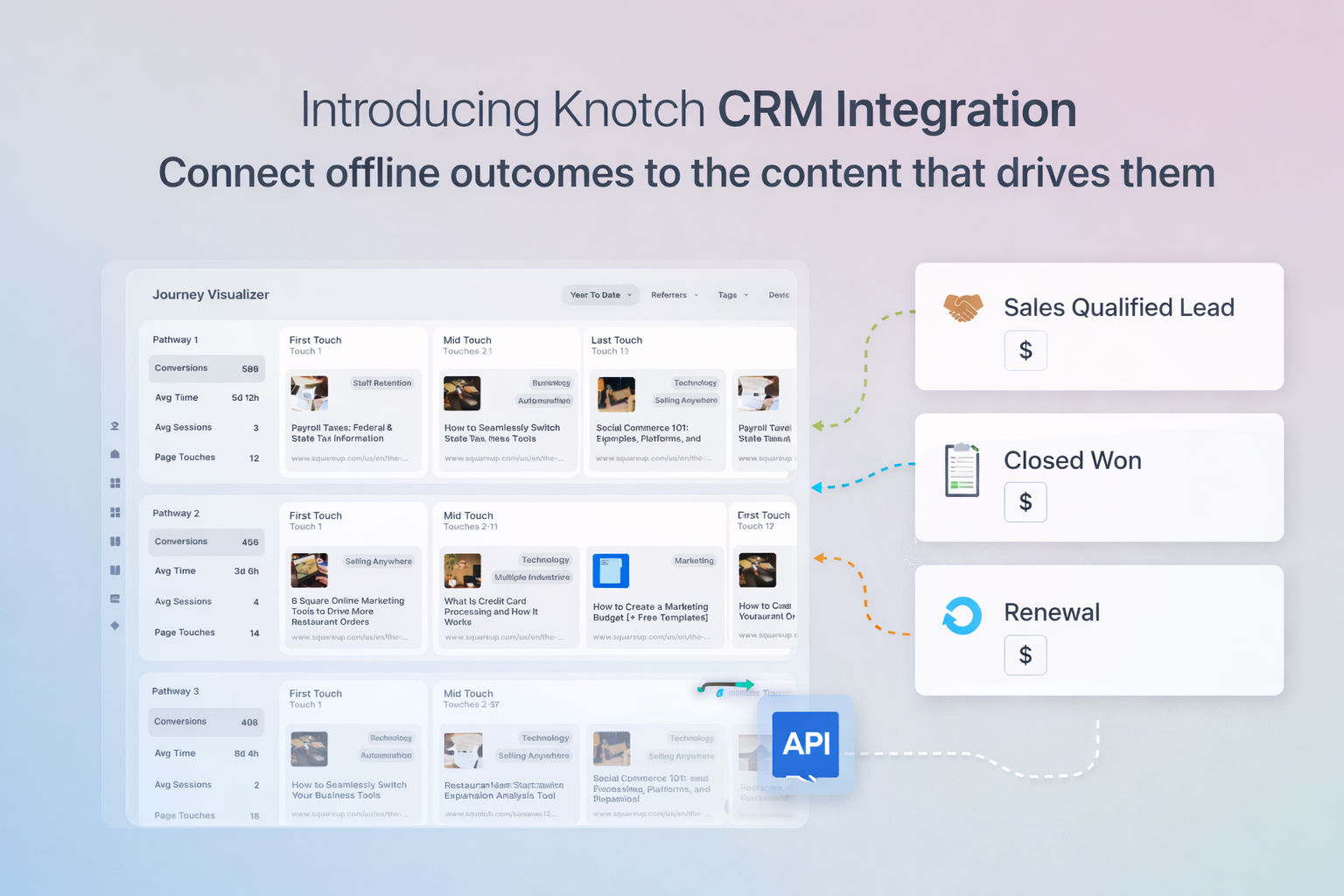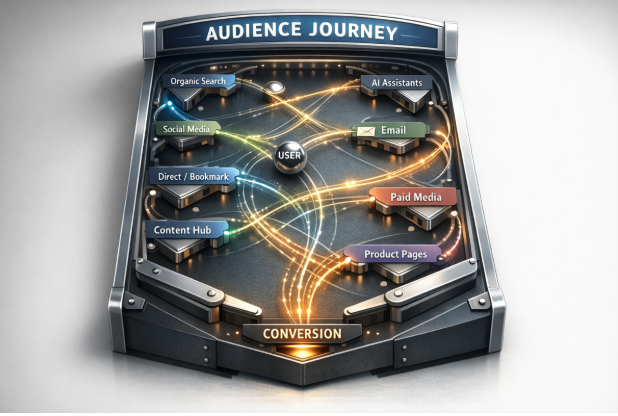
Key Takeaways and Content Marketing Trends From Content Connect 2024

Key Takeaways and Content Marketing Trends From Content Connect 2024
Last week, top minds in digital marketing, data analytics and marketing technology got together in the bustling heart of New York City for Content Connect 2024, a day of insightful discussions, illuminating workshops and invaluable networking opportunities. In case you missed it, we’ve gathered key highlights and emerging trends from the sessions, providing you with a comprehensive overview of the ideas and strategies shared by industry leaders.
Integration of Data, AI and Content
AI and data analytics are fundamentally reshaping the landscape of content marketing, offering new opportunities and challenges for marketers today and into the future. At Content Connect 2024, industry leaders provided insights into how brands are leveraging these technologies to drive better outcomes and create more impactful content experiences.
As Vivek Sharma, CEO of Movable Ink highlighted, the marketer's job is ultimately about delivering the right message to the end consumer. By bringing together data, content and AI, marketers can gain deeper insights into audience preferences and behaviors, allowing them to create more personalized and relevant content experiences.
Lauren Boyman, CMO at KPMG Americas, emphasized the role of AI in helping marketers focus more on creativity by automating manual tasks and busy work. AI-powered tools can analyze vast amounts of data to identify trends and even generate content ideas with the right training data set. However, as Kim Rosenblum, CMO at Betterment cautioned, it's essential for marketers to understand the limitations of AI and ensure that they remain the experts in their respective fields instead of becoming less thoughtful.
AI can also play a crucial role in content personalization and segmentation. As Cindy Lewis, Global Head of Content Marketing at Square highlighted, audience preferences are constantly evolving, and content must dynamically adapt to meet their needs at every stage of the customer journey. By leveraging AI-powered tools, marketers can deliver more tailored and relevant content experiences, driving deeper engagement and connection with their audiences. However, with the proliferation of AI comes the need for governance and oversight.
Laser Focus on Content Quality and Performance
In the era of information overload, quality trumps quantity when it comes to content creation. Marketers are shifting their focus from churning out endless streams of content to producing high-quality, impactful storytelling. Amanda Curtin, Vice President of Content and Social Media at Synchrony, emphasized that more is not always better when it comes to content marketing. And with the right data, marketers are able to make the case for creating content that drives results, versus just creating content for content’s sake.
But not all content is created equal. As Carla Hassan, CMO of JP Morgan Chase shared, it is not necessary to measure every piece of content for its acquisition benefit. You should have KPIs for everything, but sometimes it’s equally as important to not sell someone something as it is to sell someone something.
By building robust content marketing measurement frameworks, top marketers are able to identify appropriate goals for each piece of content and track their performance against those goals. Ultimately, this focus on quality over quantity is driving a more strategic and targeted approach to content creation. Rather than churning out large volumes of content, top marketers are investing their time and resources into creating high-quality, engaging content that resonates with their target audience and delivers tangible results for their business.
The Importance of Continuous Optimization and Experimentation
The landscape of content marketing is undergoing a profound cultural shift towards experimentation and continuous improvement, fostering a newfound culture of innovation among top marketers. This shift is driven by an acknowledgment of the evolving nature of audience preferences and the challenges of content creation to meet these rapidly changing needs.
In the past, content creation was often driven by gut instinct or adherence to established norms. However, today's content marketers, like Franklin Parrish, Senior Director, Brand, Marketing and Creative Services at Kaiser Permanente, are embracing a culture of experimentation, where testing and iterating on different content strategies and formats are valued practices. This culture encourages risk-taking and fosters an environment where failure is seen as an opportunity for learning and growth rather than a setback.
There is also a growing emphasis on the importance of data-driven decision-making in content marketing. As Ian Port revealed, sometimes marketers must be ruthless about scrapping things that the data tells them no longer work. By continuously monitoring and analyzing performance metrics, marketers can refine their approach over time, ensuring that their content remains relevant and resonant with their target audience.
Audience-Centric Content Still Reigns Supreme
Gone are the days of one-size-fits-all marketing strategies. Today, successful brands understand the importance of tailoring their content to meet the unique needs and preferences of diverse audience segments. From understanding demographic differences to leveraging psychographic insights, marketers are increasingly prioritizing audience-centric approaches — because they work.
Robin Riddle, Chief Strategy Officer at Foundry 360, discussed the evolving preferences of different audiences and generations, and the importance of adapting content strategies accordingly. Similarly, Jenn Eldin shared her experiences in combining data analytics with creative storytelling to create content that drives business outcomes.
Mallory Russell, Vice President of Global Content and Web at Square, highlighted the importance of being customer-centric, and the superpower that content teams have to understand what the consumer wants even before they do. Anticipating customer needs, and creating content to support them, creates deep connections with the customer, which ultimately will turn them into brand advocates.
Parish, of Kaiser Permanente, uses an innovative approach to integrating psychographics into the content strategy. By understanding the values, attitudes and interests of their target audience, marketers can craft content that resonates on a deeper level, driving increased engagement and affinity for the brand.
The Future of Content Marketing Is Bright, But Not Without Its Challenges
The future of content marketing is full of opportunities, but staying informed and adaptable is key. Content Connect 2024 provided valuable insights and inspiration for marketers looking to navigate the challenges and opportunities of the content landscape in 2024. As we look ahead to the future, one thing is clear: the power of content marketing to engage, inspire and drive action has never been greater.
Want to learn how Knotch can help you shine in 2024 and beyond? Request a demo here.
Become a thought leader
Become a thought leader
Trusted by the largest (and now smartest) brands in the world.
“Before Knotch we did not understand what content was driving business results. Now we understand which content moves the needle. Knotch’s cohesive reporting and insights paint a real picture of what’s happening on our website instead of the patchwork quilt that comes from a Google Analytics approach. With Knotch we have been able to re-prioritize ad spend, route better leads to our SDR team, and inform our content development initiatives.”

"The Knotch platform ensures that we deliver high-performing content tailored to young home shoppers, enhancing their experience and driving better business outcomes.”

"Our partnership with Knotch has been highly successful, empowering us to leverage data-driven insights and refine our content strategy.”





.png)



